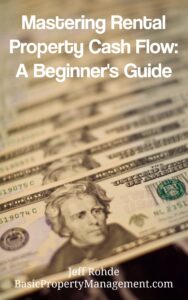Broker Opinion of Value: How to Get Fair Market Estimate

A broker opinion of value (BOV) provides a quick, cost-effective way to estimate a property’s market value. When you need to determine a property’s worth without the time and expense of a full appraisal, a BOV can offer valuable insights from experienced real estate professionals.
An experienced real estate broker will analyze your property’s characteristics, market conditions, and comparable sales to provide an estimated value range that typically costs less and takes less time than a formal appraisal. The broker draws upon their deep market knowledge and active involvement in local real estate transactions to deliver this assessment.
Unlike a formal appraisal, a BOV offers more flexibility in its approach while still providing meaningful value insights for various situations like listing price decisions, investment analysis, or portfolio evaluations.
Key Takeaways
- BOVs provide faster and more affordable property valuations compared to formal appraisals
- Real estate brokers leverage their market expertise and recent sales data to estimate property values
- A broker’s price opinion of value helps inform decisions for listings, purchases, and portfolio management
Understanding Broker Opinion of Value (BOV)
A Broker Opinion of Value (BOV) provides essential property valuation insights through a streamlined assessment process. Real estate professionals rely on BOVs to make quick, informed decisions about property values.
Definition and Purpose
A BOV is an estimate of a property’s worth provided by a licensed real estate broker. This informal valuation tool helps property owners, investors, and lenders gauge market values quickly and cost-effectively.
Your broker will analyze current market conditions, comparable properties, and location-specific factors to determine an estimated value range.
BOVs serve multiple purposes in real estate transactions:
- Quick property valuations for time-sensitive decisions
- Initial pricing guidance for sellers
- Value verification for potential buyers
- Portfolio assessments for investors
Differences Between BOV and Formal Appraisal
BOVs follow a different process than formal appraisals. While both evaluate property worth, they differ in several key aspects:
Time and Cost:
- BOVs: Faster completion (typically 3-5 days), lower cost
- Appraisals: Longer process (2-3 weeks), higher fees
Depth of Analysis:
- BOVs: Focus on market comparables and current conditions
- Appraisals: Include detailed property inspection, extensive documentation, and strict regulatory compliance
Key Components of a BOV
Your broker’s assessment will typically include these essential elements:
Property Analysis:
- Physical condition assessment
- Location evaluation
- Current and potential use analysis
Market Research:
- Recent comparable sales
- Local market trends
- Current competition analysis
Financial Considerations:
- Rental rates in the area
- Operating expenses
- Potential return on investment
The Role of a Real Estate Broker in BOV
A broker opinion of value represents a professional assessment that combines market expertise with detailed property analysis. Real estate brokers leverage their extensive market knowledge and access to proprietary data to deliver accurate valuations.
Assessing Market Value
Your broker evaluates multiple factors to determine property value. These include location quality, building condition, tenant mix, and local economic indicators.
Property characteristics assessed include:
- Square footage and layout efficiency
- Building age and maintenance history
- Recent renovations or upgrades
- Current occupancy rates
- Parking availability and access
Professional brokers examine both physical attributes and financial performance metrics like net operating income and expense ratios.
Local market conditions play a critical role in the assessment. Your broker analyzes area development patterns, new construction activity, and shifts in tenant demand.
Determining Listing Price
Setting an appropriate listing price requires balancing current market conditions with your property’s unique attributes. Your broker analyzes recent transactions of similar properties to gauge market pricing.
Key pricing factors include:
- Location premium relative to comparable properties
- Current market vacancy rates
- Local rental rate trends
- Property condition relative to competition
Experienced brokers consider both quantitative data and qualitative factors like property positioning and market timing.
Comparative Market Analysis
Your broker conducts detailed comparisons of similar properties that have recently sold or are currently listed. This analysis forms the foundation of an accurate BOV.
Comparison criteria typically include:
- Property size and age
- Location and accessibility
- Building class and quality
- Tenant mix and lease terms
- Sale date and conditions
The analysis examines price per square foot, capitalization rates, and other key metrics across comparable properties. Your broker adjusts for differences in property characteristics to arrive at a supportable value range.
Market trends and sales velocity also factor into the comparative analysis to ensure current market conditions are reflected in the valuation.
Frequently Asked Questions
A broker opinion of value delivers professional property valuations through detailed market analysis and comparative property data. The process requires specific documentation, methodology, and expertise to produce accurate results.
How can one create a broker opinion of value report?
Start by gathering comprehensive property details, including square footage, condition, and recent improvements.
Collect data on comparable property sales from the last 6-12 months in the same market area.
Document current market conditions, rental rates, and occupancy levels for similar properties nearby.
What factors differentiate a broker opinion of value from an appraisal?
Broker opinions of value offer faster turnaround times and generally cost less than formal appraisals.
BOVs rely more heavily on recent market activity and broker expertise rather than rigid valuation formulas.
Licensed appraisers must follow strict guidelines and standards, while brokers have more flexibility in their analysis methods.
Which elements are typically included in an opinion of value for residential properties?
Include exterior and interior property photos, along with detailed descriptions of finishes and amenities.
Document the property’s location attributes, nearby amenities, and school district information.
Analyze recent sales of similar properties within a 1-mile radius to establish reliable value comparisons.
What are the essential components of a commercial real estate broker opinion of value?
Commercial BOVs require detailed income analysis, including current rent rolls and operating expenses.
Examine market lease rates, vacancy rates, and absorption trends in the surrounding area.
Review property maintenance records, capital improvements, and any deferred maintenance issues.
How is the cost of obtaining a broker opinion of value determined?
Pricing typically depends on property size, complexity, and the level of detail required in the report.
Most brokers charge between $500-2,000 for a comprehensive BOV, based on the scope of work involved.
Can you provide an example of a broker opinion of value report?
A sample BOV includes property identification, market analysis, and three comparable sales with detailed adjustments.
The report features current photos, income statements if applicable, and local market trends affecting value.
A final value conclusion presents both a price range and specific value recommendation with supporting rationale.
Looking for deeply discounted properties others don’t know about?
Don’t miss out on the next great investment opportunity! Search millions of foreclosure listings and get daily alerts for new properties in your target market.

Think managing rental properties is as simple as collecting rent? Think again.
Mastering Rental Property Cash Flow: A Beginner’s Guide unveils the intricate world of rental property finances that goes far beyond basic income collection.
From understanding market cycles to optimizing tax strategies, this guide provides you with the knowledge to maximize your potential returns. Learn how to navigate the complex landscape of expenses, capital improvements, and financial planning that seasoned property managers use to build wealth.
Don’t just own a rental property – master the art of turning it into a thriving, cash-generating asset that stands the test of time.
Get your copy now from your favorite bookseller:
- Amazon
- Books2Read for Apple, Barnes & Noble, Kobo, Scribed, and 8 more sellers with both eBook and paperback options available
- Payhip as a downloadable PDF
Ready to take your business to the next level?
- Subscribe to our newsletter
- Visit the learning center
- Learn more about our consulting services
